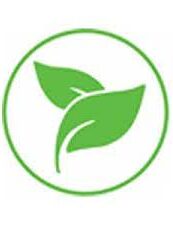In December 2018, I had written an article on the Central Bank of Nigeria’s circular TED/FEM/FPC/GEN/01/006 dated 10th December, 2018, notifying the public of its restrictions on the provision of foreign exchange (forex) to intending importers of all forms of fertilizer into Nigeria. Often times, this translates to a ban, as marketers are usually unable to trade with forex obtained from the black market.
The article further looked at the possible implications of the ban on one hand to Nigerian farmers who depend on fertilizers for increased production. On the other hand, it looked at the promotion of the then Economic Recovery and Growth Plan (ERGP) which sought to promote local production within Nigeria.
Following through with the trend as a result of CBN’s action, in 2019 I had the opportunity of interacting closely with a number of farmers in Northern Nigeria. From what i found out from some key players in the fertilizer sub-sector on the issue, i share some thoughts below.
So, why did the Federal Government ban fertilizer importation in the first place?
Well, it is now established that the goal was to support the growth of domestic industries by stimulating local production. However, the initial plan was not to out rightly place a ban on all forms of fertilizers. This beacause the government’s interest was originally on NPK 15:15:15 which was discovered to be lacking in the right balance of nutrients required for crop production in the country.
Unfortunately, a miscommunication at some point which remains unclear, led to the omission of NPK from the document, leaving only the word “fertilizer” to stand on its own (how interesting?). There was also the issue of national security, as it was discovered that Urea, a major component of the NPK fertilizers was used in the production of Improvised Explosive Devices (IEDs) by insurgents in North Eastern Nigeria.
After more than a year, the ban has now led to an upsurge in the price of fertilizers including the subsidized Presidential Fertilizer Initiative (PFI) blend which was earlier rejected by farmers who claimed the product was unable to meet the nutrient demand of their crops. A bag of NPK 15: 15: 15 which sold for N6,000 before the ban, was sold for as high as N12,000 while the PFI brand sold for between N7,500 – N8,000 from N5,500 reflected on each bag by late 2019.
Local producers were not left out, as blending was halted in most parts of the country owing to the unavailability of raw materials which had been banned as well. This has become a major set-back to the country’s food production system which already suffers from numerous man-made and institutional factors.
However, I must confess that I am at cross-roads, wondering if this is no issue at all as it may just be another stringent measure the nation needs or whether the issue at hand could have been better managed to ensure that issues relating to a critical sector like agriculture are treated more earnestly. Maybe proper dialogue between relevant stakeholders in charge of food production resources would have done the magic. Need I emphasize that the place of dialogue cannot be overemphasized.
Although I am reliably informed that the country’s fertilizer blenders through the intervention of the Fertilizer Producers and Suppliers Association of Nigeria (FEPSAN) in 2020, would now import fertilizer raw materials through the Office of the National Sovereign Investment Authority (NSIA) even though there are complaints amongst blenders that this move has prevented them from reaching a collective blending capacity of about 3-4million tones per annum.
It therefore worries me that as always, we may be failing to adopt sustainable approaches to ensuring efficient systems required for problem solving in the country. So I ask, if over one year after, the ban has been able to sustainably promote domestic production or curbed activities of insurgents as they are now unable to access Urea? I guess I’ll have to wait to see.
Thanks for reading always. Please remember to leave a comment, like and share this post to foster further discussions on issues relating to the achievement of food and nutrition security in Nigeria.
To apply for UN Opportunities Within Nigeria, Click Here
See Our Content Library, Click Here

One Response